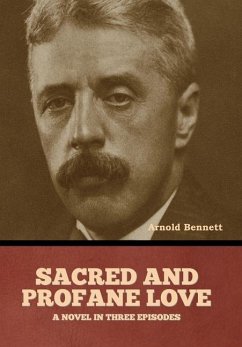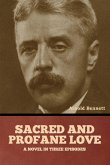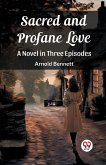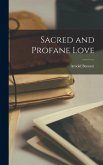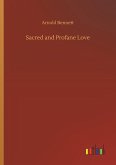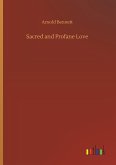"...Bennet has created a character of an artistic and intellectual young woman who is also sensuous, passionate and yielding, 'a man's woman'. He tells her story in the first person, and for this purpose he has created a striking, emotionally charged, poetic style of prose that he thinks befits such a character. She loves music, and her experiences while listening to it are among the most enchanting pages of the book. She loves, and she suffers. And she writes novels that bring her fame and wealth. When reading the book you will wonder if such a woman could ever exist, if it is not an embodiment of the author's yearning for that kind of Woman, and that kind of Love. What is her destiny? It is difficult to account for the 'sacred' and the 'profane' in the various manifestations of love throughout her story. Granted, it is a puzzling book, but it is also a rewarding read. Provided of course that this work of art 'speaks' to you. " [Reviewer (aismorienne )] About the Author: Enoch Arnold Bennett (27 May 1867 - 27 March 1931) was an English writer. He is best known as a novelist, but he also worked in other fields such as the theatre, journalism, propaganda and films. Bennett was born in a modest house in Hanley in the Potteries district of Staffordshire. Hanley was one of the Six Towns that were joined together at the beginning of the 20th century as Stoke-on-Trent and are depicted as "the Five Towns" in some of Bennett's novels. Enoch Bennett, his father, qualified as a solicitor in 1876, and the family moved to a larger house between Hanley and Burslem. Bennett was educated in Newcastle-under-Lyme. In 1889 Bennett won a literary competition run by the magazine Tit-Bits and was encouraged to take up journalism full-time. In 1894 he became assistant editor of the magazine Woman. He noticed that the material offered by a syndicate to the magazine was not very good, so he wrote a serial that was bought by the syndicate for 75 pounds (equivalent to £10,000 in 2016). He then wrote another. This became The Grand Babylon Hotel. Just over four years later his novel A Man from the North was published to critical acclaim and he became editor of the magazine. In 1900 Bennett gave up the editorship of Woman and dedicated himself to writing full-time. However, he continued to write for newspapers and magazines while finding success in his career as a novelist. In 1926, at the suggestion of Lord Beaverbrook, he began writing an influential weekly article on books for the London newspaper the Evening Standard. One of Bennett's most popular non-fiction works was the self-help book How to Live on 24 Hours a Day. His diaries have yet to be published in full, but extracts from them have often been quoted in the British press. Bennett's output was prodigious and, by his own admission, was based on maximising his income. As Bennett put it: Am I to sit still and see other fellows pocketing two guineas apiece for stories which I can do better myself? Not me. If anyone imagines my sole aim is art for art's sake, they are cruelly deceived. (wikipedia.org)
Hinweis: Dieser Artikel kann nur an eine deutsche Lieferadresse ausgeliefert werden.
Hinweis: Dieser Artikel kann nur an eine deutsche Lieferadresse ausgeliefert werden.

